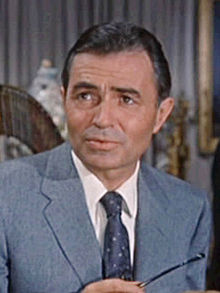I was star struck from an early age. My Pop used to sneak me into the movies, because, in Montreal, you had to be sixteen to go to the movies, unless they were showing Cinderella or Snow White.
I was about thirteen, but I would dress up in my mother's white chenille shortie coat, beige Cuban heeled shoes and I put my hair up in a pageboy with a "rat". I performed the role of a sixteen year old. The manager at The Canada cinema on St. Lawrence Blvd. knew I wasn't sixteen, but he would wink at my father and let us in. Fourteen cents? Perhaps a quarter later. In that role, I was able to go to all the movie theatres in Montreal, with my father, George Rubin - and later alone. I learned about life and the world from the movies of the 1940's. They created me.
I also went to concerts and other performances at The Seville, Plateau Hall and His Majesty's Theatre. I waited at the stage door, in even the most bitter winter weather, to meet the movie stars and entertainers and get their autographs. I suffered the cold and fatigue to experience a few precious moments with a star.
One day in 1949, I went to Henry Morgan's department store (The Bay) on St. Catherine Street West to see James Mason. He was to be there with his wife, Pamela Kellino to sign their new book about cats. I was twelve and working part time at my family's famous International newspaper store, Metropolitan News, 1248 Peel Street, a few blocks from Morgan's.
I went to the books department. There was a crowd. I couldn't see the stars. So I climbed up on a stack of newly-arrived magazines to try to catch a glimpse of James Mason.
Magazines are glossy. The stack slipped out from under me and I went sliding ... into the arms of James Mason.
He was such a charming gentleman. I was embarrassed - but what a thrill!
One of my precious moments.
JAMES MASON
From 1935 to 1938 James Mason starred in many British quota quickies. He registered as a conscientious objector during World War II[3] (causing his family to break with him for many years), but his tribunal exempted him only on the requirement to do non-combatant military service, which he refused; his appeal against this became irrelevant by including him in a general exemption for film work.[4]
Mason became hugely popular for his brooding anti-heroes in the Gainsborough series of melodramas of the 1940s, including The Man in Grey (1943) and The Wicked Lady (1945). He also starred with Deborah Kerr and Robert Newton in Hatter's Castle (1942). He then took the lead role in the popular The Seventh Veil (1945), which set box office records in postwar Britain and raised him to international stardom. He followed it with a role as a mortally wounded Irish bank robber in Odd Man Out (1947) and his first Hollywood film, Caught (1949). Exhibitors voted him the most popular star in Britain in each year between 1944 and 1947. They also thought he was the most popular international star in 1946; he dropped to second place the following year.[5][6] He was the most popular male star in Canada in 1948.[7]
Mason's "languid but impassioned"[3] vocal talent enabled him to play a menacing villain as easily as his good looks assisted him as a leading man. His roles include Brutus in Julius Caesar (1953), Field Marshal Erwin Rommel in The Desert Fox: The Story of Rommel and The Desert Rats, the amoral valet turned spy in Joseph L. Mankiewicz's 5 Fingers, the declining actor in the first remake of A Star Is Born (1954), Captain Nemo in 20,000 Leagues Under the Sea (also 1954), a small town school teacher driven insane by the effects of cortisone in Bigger Than Life (1956), a suave master spy in North by Northwest (1959), and a determined explorer in Journey to the Centre of the Earth (also 1959).
In 1963 he settled in Switzerland,[8] and embarked on a transatlantic career. He played Humbert Humbert in Stanley Kubrick's version of Lolita (1962), a river pirate who betrays Peter O'Toole's character in Lord Jim (1965), Bradley Morahan in Norman Lindsay's Age of Consent (1969), the evil Doctor Polidori in Frankenstein: The True Story (1973), the vampire's servant, Richard Straker, in Salem's Lot, and surreal Royal Navy Captain Hughes in Yellowbeard (1983). One of his last roles, that of corrupt lawyer Ed Concannon in The Verdict (1982), earned him his third and final Oscar nomination.
Late in his life, Mason narrated two British documentary series supervised by Kevin Brownlow: Hollywood (1980), on the silent cinema and Unknown Chaplin (1983), devoted to out-take material from the films of Charlie Chaplin. Mason had been a long-time neighbour and friend of the comedian.
Having completed playing the lead role in Dr. Fischer of Geneva (1985), adapted from the Graham Greene's eponymous novella for the BBC, he stepped into the role originally meant for Paul Scofield in The Shooting Party, who was unable to continue due to several of the actors being seriously injured in an accident on the first day of shooting. This was to be his final screen performance.[9] In the late 1970s, Mason became a mentor to up-and-coming actor Sam Neill.[10]
Mason was a devoted lover of animals, particularly cats. He and his wife, Pamela Mason, co-authored the book The Cats in Our Lives, which was published in 1949. James Mason wrote most of the book and also illustrated it. In The Cats in Our Lives, he recounted humorous and sometimes touching tales of the cats (as well as a few dogs) he had known and loved.

No comments:
Post a Comment